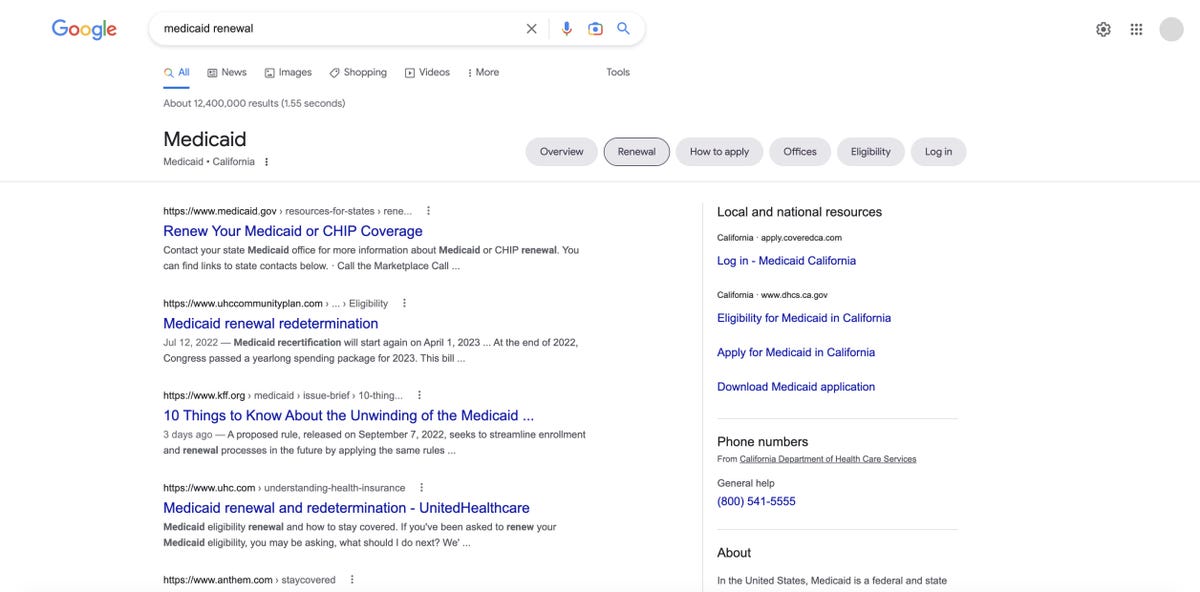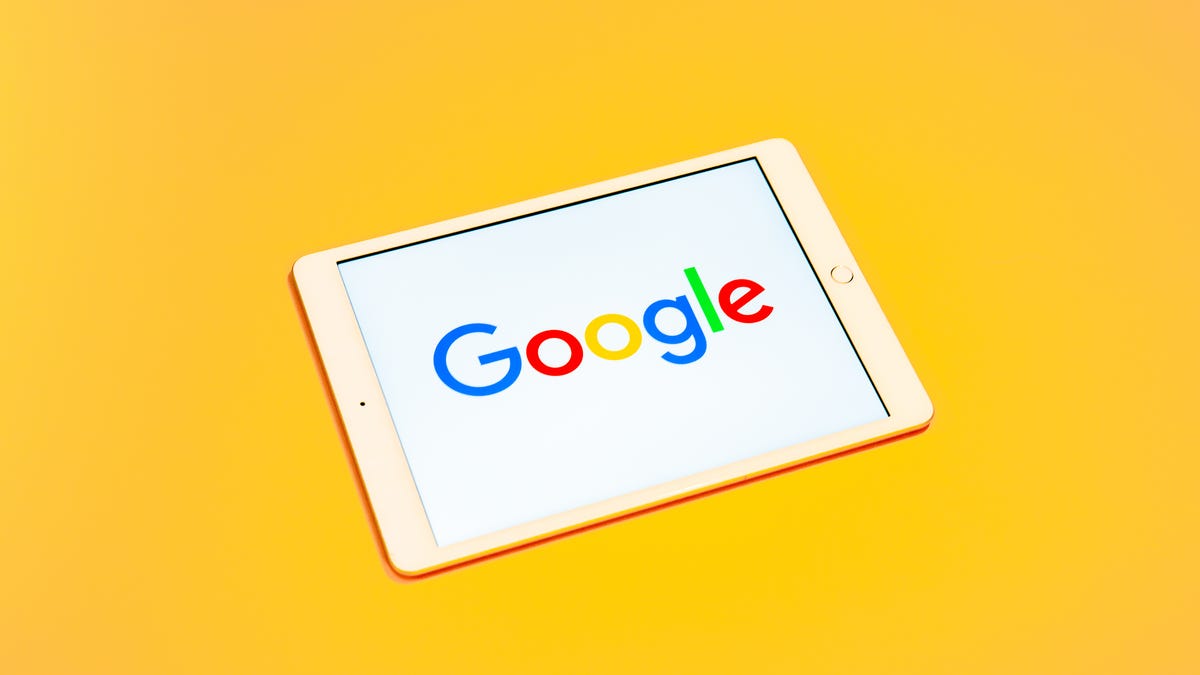Google on Tuesday unveiled updates to Search that are designed to make it easier to find affordable health care. The announcement came as part of The Check Up, an annual event put on by the search giant’s health branch. The event also included news on other efforts, including advancements in artificial intelligenceprojects aimed at increasing health care access.
Notably, Google said it’s looking to make it simpler to find re-enrollment information for Medicaid, a health insurance program for people with limited income, when users open Google to search. Requirements to re-enroll were put on pause during the pandemic, but that pause expires at the end of March. This means people with Medicaid will need to renew their information soon.
Which state you live in determines when your health care coverage may be affected, as PBS reports, but you’ll need to confirm your personal information, eligibility requirements and other information to stay insured. Google said a Search update will help with that by making it easier to find renewal information and log in to your state portal.


Finding affordable health care online at free or low-cost clinics may be a little easier. The company promised you’ll soon be able to find and identify such providers when searching online, including community health clinics. Google also said it’s using Duplex, its conversational AI system, to contact health care providers and verify their information posted online.
On the mental health front, Google said it’s increasing the number of crisis helplines that appear at the top of Google searches related to suicide, domestic violence and other crises. Through a partnership with ThroughLine, those crisis lines can be found in more countries and languages.
Google also said it’s adding more medical partners to some of its AI projects, with the hope of increasing health equality by simplifying medical screenings and tools. One of these partnerships is with Jacaranda, a nonprofit in Kenya that’s trying to improve outcomes for pregnant women and their children by developing simplified ultrasounds with less expensive equipment through AI. Expensive ultrasound equipment and required training for specialists may be a health care barrier in some parts of the world with higher maternal mortality rates.
Tapping AI further for medical diagnostics, Google said it’s partnering with the Mayo Clinic to develop an improved method of “contouring” for radiotherapy used in cancer treatment. Because radiotherapy uses a high dose of radiation to kill cancer cells, careful steps by the health care team must be taken to outline or “contour” the tumor to limit radiation in surrounding parts of the body. Google said it hopes its AI can save the care team time during this process.
Other AI projects at Google include efforts to create a better tuberculosis-screening method and an ultrasound that can detect breast cancer — though there’s no timeline yet for when any of these projects will be available for patients beyond the research stage.
Other health notes include Google’s update to Fitbit’s health metrics dashboard, as well as Google’s continued work on Med-PaLM, an AI tool designed to answer medical questions and, hopefully, provide reasoning. On Tuesday, Google said its improved version, the Med-PaLM 2, performed at an expert level when answering the types of questions you’d be asked on a medical licensing exam. In a blog post, Google added that more work is needed to “make sure this technology can work in real-world settings.”
